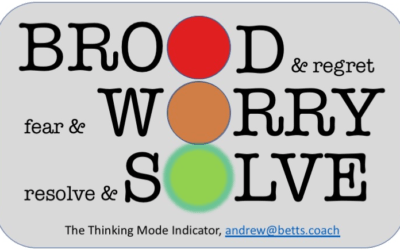Children ask the most amazing questions: “When lightning hits the sea, why don’t all the fish die?”; “Do blind people see pictures when they dream?”; “Why are you sad, Mummy?”.
Their questions are often thought-provoking and intimate. They are triggered by sincere curiosity. Their intention is inoffensive, they are short, sweet and, even if they’re not articulated perfectly, we understand them.
Can we relearn the naïve art of asking straightforward, effective questions that provoke without giving offense and which strengthen relationships in a natural way?
That was a rhetorical question – of course we can!
I would like to recommend the following three habits:
- First, clarify the purpose of the question to oneself
- Second, make sure that its intention is helpful
- Third, ask briefly, just once, then listen
Purpose
The purpose of the most interesting questions goes way beyond simply obtaining information, of course.
Consider, for example, a conversation between a consulting firm’s CEO and their financial controller. The controller asks, “But what if we take on this new guy and we don’t get the expected projects?”. This question is perhaps attempting to dampen the CEO’s teambuilding enthusiasm, to encourage prudence or to provoke fear, uncertainty and doubt? If the CEO is on the ball, they might respond with a question of their own: “And what if we don’t take him on and we get more projects than expected?”.
Both of these examples are “reframing questions”. They aim to change the other person’s opinion or understanding by presenting a situation from an alternative point of view. Just as reframing a picture can dramatically change its appearance, so a reframing question can prompt us to see things differently.
Another purpose might be to get the other person talking, in which case I could use an “umbrella question” – one that is open and covers a lot of possibilities. Alternatively, I might be trying to get clarity on an issue, be encouraging, put up a defence, show interest or shock, for example.
Helpful intention
Whatever the purpose of my question, it must help in some way. In asking it, my intention must be either to directly help the other person (by prompting them to find their own solution to a problem, perhaps) or to move the meeting process forward.
But it must not be purely self-serving.
Everyone has attended meetings and conferences where someone has asked a complicated question in order to show how clever they are. The best I remember was at a talk by Stephen Hawking, the renowned physicist who suffered from motor neuron disease and therefore communicated, slowly, via a voice synthesiser, controlled by eye movement.
His first response to a troublesome questioner was to ask for clarification, which was then given, at enoooormous length. Hawking’s next response was slow in coming. Very slow. The audience was entranced – he must surely be preparing an incredible piece of wisdom!
After a minor eternity, Hawking’s answer cut the questioner right down to size. To everyone’s amusement, he just said “No”. The great man knew how to deal with self-serving questions.
Ask briefly, just once
Finally, I strongly advise asking questions, briefly, just once, avoiding the temptation to reformulate before being asked to do so.
Having a perfectionist tendency, I am rarely satisfied with the questions that I ask. As a result, I often feel the desire to clarify my question, even before the other person has attempted to answer it. The result is total loss of impact. The original question is diluted and confused by my reworking it. Contradictions slip in, requiring further explanation, and by the time I’ve shut up, the other person has probably lost the thread, along with the will to live.
However, life has taught me that even the most perfectly crafted question is open to interpretation. With this in mind, it makes more sense just to try my best to ask a question that’s aligned with my intention, then sit back and listen.
So, the next time a child asks something like, “Why aren’t clouds blue, like the sea?” , take inspiration from them and try asking your colleagues equally engaging and effective questions. To do so, first ask yourself “why am I asking this?” and , “will it help?” then just ask briefly, once.






